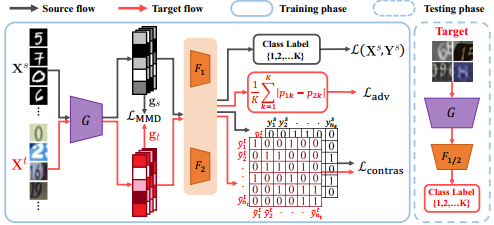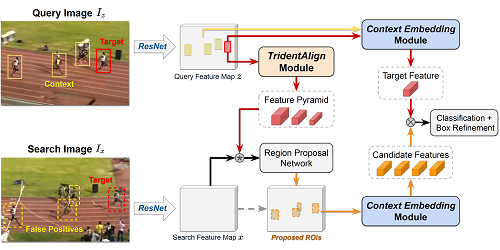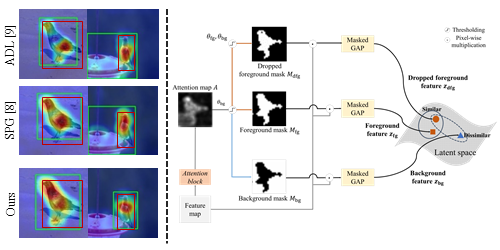Domain Adaptation Gaze Estimation by Embedding with Prediction Consistency
Zidong Guo (Xi'an Jiaotong university)*, Zejian Yuan (Xi‘an Jiaotong University), Chong Zhang (Tencent Robotics X), Wanchao Chi (Tencent Robotics X), Yonggen Ling (Tencent), shenghao zhang (Tencent)
Keywords: Face, Pose, Action, and Gesture
Abstract:
Gaze is the essential manifestation of human attention. In recent years, a series of work has achieved high accuracy in gaze estimation. However, the inter-personal difference limits the reduction of the subject-independent gaze estimation error. This paper proposes an unsupervised method for domain adaptation gaze estimation to eliminate the impact of inter-personal diversity. In domain adaption, we design an embedding representation with prediction consistency to ensure that linear relationships between gaze directions in different domains remain consistent on gaze space and embedding space. Specifically, we employ source gaze to form a locally linear representation in the gaze space for each target domain prediction. Then the same linear combinations are applied in the embedding space to generate hypothesis embedding for the target domain sample, remaining prediction consistency. The deviation between the target and source domain is reduced by approximating the predicted and hypothesis embedding for the target domain sample. Guided by the proposed strategy, we design Domain Adaptation Gaze Estimation Network(DAGEN), which learns embedding with prediction consistency and achieves state-of-the-art results on both the MPIIGaze and the EYEDIAP datasets.
SlidesLive
Similar Papers
Contrastively Smoothed Class Alignment for Unsupervised Domain Adaptation
Shuyang Dai (Duke University)*, Yu Cheng (Microsoft), Yizhe Zhang (Microsoft Research), Zhe Gan (Microsoft), Jingjing Liu (Microsoft), Lawrence Carin (CS)

Visual Tracking by TridentAlign and Context Embedding
Janghoon Choi (Seoul National University)*, Junseok Kwon (Chung-Ang Univ., Korea), Kyoung Mu Lee (Seoul National University)

In-sample Contrastive Learning and Consistent Attention for Weakly Supervised Object Localization
Minsong Ki (Yonsei University)*, Youngjung Uh (Yonsei University), Wonyoung Lee (Yonsei University), Hyeran Byun (Yonsei University)
